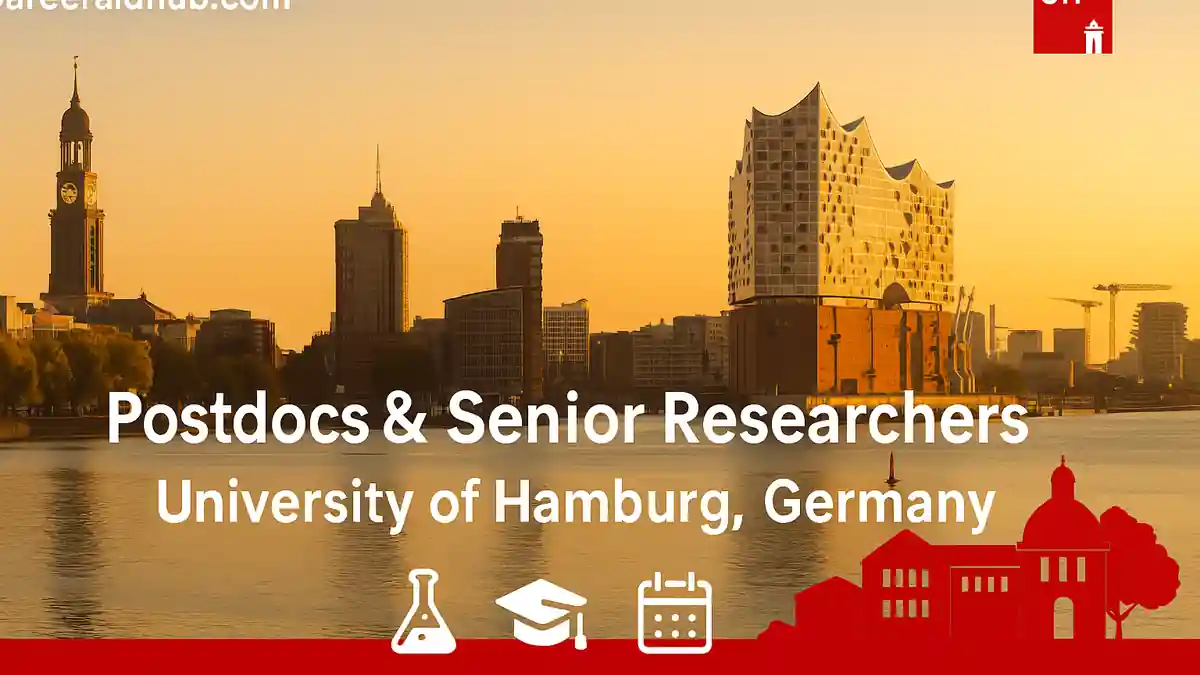
Introduction
Qatar University (QU) runs fixed-term postdoctoral fellowships designed to advance national research, development, and innovation priorities while accelerating fellows’ publication pipelines and grant readiness. Appointed scholars work within established labs under a host principal investigator (PI) or center and benefit from institutional policies that formalize eligibility, responsibilities, and entitlements.
Qatar University offers competitive postdoctoral fellowships that align with national research and innovation priorities. Fellows join active laboratories, co-author high-impact papers, and receive tax-advantaged compensation with benefits. Structured terms, clear expectations, and strong PI mentorship help international researchers accelerate publications, build grants, and transition toward independent academic or industry careers.
Why it matters
Qatar University offers a structured route for early-career researchers to gain deep domain expertise and international exposure. Fellows co-develop proposals, contribute to competitive grants, and embed themselves in collaborative teams that publish in Q1/Q2 journals. Moreover, the compensation framework is tax-advantaged, which—combined with benefits—materially improves take-home support relative to many global postdoc markets.
What’s on offer (at a glance)
Funding & term
- Typical duration: 12–24 months, with a potential extension when justified and approved according to policy. Terms are communicated in each call and confirmed in the award letter.
style="text-align: justify;">
Compensation- Indicative range: recent calls have advertised ~USD 56k–78k per year (tax-free) with benefits. Exact amounts vary by unit, funding line, and candidate profile, and are defined in the appointment.
Fields
- Priority areas: engineering, physical sciences, life sciences, data/AI, energy, environment, health, and other QU strategic domains. Calls may specify themes aligned to national RDI priorities.
Expectations
- Outputs and service: target high-impact publications (Q1/Q2), collaborate across QU units, mentor junior researchers, and support grant development (e.g., scoping, drafting, budgeting, and compliance). Teaching is not primary but limited activities may be arranged with the host, as appropriate.
Eligibility
Academic background
- Doctorate required in a QU-priority field from a recognized institution. A strong publication record—preferably with first/lead-author papers in reputable journals—is expected.
Appointment conditions
- International applicants are welcome. Appointments are made through a host PI/center at QU. Employment is contingent on institutional approvals, available funding, and compliance with national regulations.
How to apply
1) Find a fit
2) Prepare a complete dossier
Assemble a concise package: CV, publications list (with links/DOIs), research statement outlining 12–24-month objectives, and references. Emphasize how your methods, datasets, or domain knowledge will advance the host’s active projects and contribute to near-term publications and grant milestones.
3) Submit by the call deadline
QU posts calls periodically (often branded as Stage rounds). Submit your materials through the process indicated in the announcement, and observe every requirement on formatting, filenames, and referee timelines. Late or incomplete submissions are typically not reviewed.
Policy notes & benefits
Structure and entitlements
- The official QU postdoctoral framework provides one-year appointments with a possible 12-month extension, plus paid leave and access to fringe benefits generally modeled on institutional norms for academic staff.
Ecosystem connections
- Fellows may also intersect with the broader Qatar RDI ecosystem through PI-held grants or national programs, complementing lab resources and enabling multi-institution collaborations, data access, or facility sharing.
Deadlines
Call rhythm
- Qatar University releases themed calls during the year, and timelines can differ by unit and
funding line. Monitor Research Support announcements and faculty/center pages regularly for the next window.
Forward look
- Based on prior cycles, anticipate a late-year call (October) and a spring call (April). These months are indicative; we will update soon once QU posts the official schedule for the next cycle.
Practical guidance to strengthen your case
Align with national RDI priorities
- Map your proposal to high-value national themes (e.g., energy, health, environment, digital/AI, future cities). Concretely show how your work will translate into publications and grant proposals within 6–18 months.
Demonstrate rapid publication potential
- Provide a draft paper roadmap (targets, outlets, anticipated datasets/experiments) and indicate what is submission-ready in the first 3–6 months.
Show collaborative leverage
- Highlight co-authorship networks, shared instrumentation experience, and any industry or clinical bridges that accelerate impact or technology translation.
Program at a glance
Feature | Details |
Program Name | Qatar University Postdoctoral Fellowship Programme |
Host Country | Qatar (Middle East) |
Funded By | Qatar University host units (often via PI or center grants; may complement national RDI schemes as applicable) |
Duration | 12–24 months, with possible 12-month extension per policy |
Study Mode | Full-time, on-campus appointment within a QU research unit |
Eligibility | PhD in a QU-priority field; strong publication record; appointment via QU host PI/center |
Financial Support | Tax-advantaged salary (indicative ~USD 56k–78k/year), paid leave, and fringe benefits aligned to institutional norms |
Fields of Study | Engineering, physical sciences, life sciences, data/AI, energy, environment, health, and related strategic areas |
Deadline | Calls vary by Stage; typical months: October and April (we will update soon) |
Official Website | Click here |
Conclusion
Qatar University’s postdoctoral fellowships provide a clear, policy-driven structure, competitive compensation, and access to active research ecosystems—ideal conditions for focused output and career acceleration. By aligning a concise research plan with unit priorities and national themes, applicants can present a compelling case for selection. For forthcoming Stage calls, consult the university’s official research support channels for authoritative updates and timelines.
References
- Qatar University – Postdoctoral Fellowship Policy (Official PDF): https://www.qu.edu.qa/siteimages/static_file/qu/about/documents/By%20Laws%20Policies/ACADEMIC_028_Postdoctoral%20Fellowship.pdf
Frequently Asked Questions (FAQs)
What are Qatar University Postdoctoral Fellowships?They are fixed-term, funded research positions at Qatar University, offering scholars competitive compensation, research support, and career development in priority STEM and applied science fields.
Who can apply for Qatar University Postdoctoral Fellowships?Applicants must hold a PhD in a relevant field, demonstrate a strong publication record, and secure sponsorship from a Qatar University faculty member or research center.
What is the duration of Qatar University Postdoctoral Fellowships?Fellowships usually last 12–24 months, with possible one-year extensions if justified and approved according to university policy.
What financial support do fellows receive at Qatar University?Fellows typically receive a tax-free salary package ranging between USD 56,000 and 78,000 annually, along with paid leave and institutional benefits.
Which fields of study are supported by Qatar University Postdoctoral Fellowships?Supported fields include engineering, life sciences, physical sciences, energy, environment, health, artificial intelligence, and other areas aligned with Qatar’s national research priorities.
How can I apply for a Qatar University Postdoctoral Fellowship?You must identify a suitable host PI or center, prepare application documents, and submit them through Qatar University’s research support office within the call deadline.
What documents are required for a Qatar University Postdoctoral application?Typical documents include a detailed CV, research statement, publication list, and professional references aligned with the fellowship’s research priorities.
Are international candidates eligible for Qatar University Postdoctoral Fellowships?Yes, international scholars are encouraged to apply, provided they meet the academic and publication requirements and are sponsored by a host PI at Qatar University.
What are the expectations for Qatar University postdoctoral fellows?Fellows are expected to publish in high-impact journals, collaborate with faculty, mentor junior researchers, and contribute to grant-writing activities.










